 Michael Pollack of Rocket Fuel Labs
Michael Pollack of Rocket Fuel Labs
Verbatim, Part 2 – John Jonelis
“My firm, adamant business philosophy is that I sincerely and always want to under-promise and over-deliver.” Michael Pollack
I’m in the belly of the beast—the huge 1871 incubator in the Chicago Merchandise Mart that hosts universities, accelerators, venture capital firms, and private companies that help the many startup ventures housed in their space.
Entrepreneurs need an array of technology services that separate the merely ordinary from the truly extraordinary. Rocket Fuel Labs proposes to supply that technology on a contract basis. They act as part development studio, part incubator, part product-development resource, part innovation think tank.
I’m continuing a conversation with a genuine thought leader—Michael Pollack, CEO of Rocket Fuel Labs. As I write this, his own company nears its launch date.
Michael Pollack—When I think about infrastructure, I think about our business. It’s about providing technology infrastructure that businesses can build on. That’s where I get really excited about what we’re doing here.
John—Would you mind filling in a little more of your own history? Maybe pick up where we left off and lead up to your new venture.
.
The Serial Entrepreneur
Mike—Sure. I happened to get into the logistics business—AFN—Advantage Freight Network. We were pretty successful. We grew the business to a very respectable figure in two and a half years. After the merger, I exited that business. I didn’t want to stay there anymore. I was immature.
John—You’re creative. You get tired of one thing and want to do another. I made the same decision after a merger.
Mike—I couldn’t have said it in a nicer way. Better coming from your mouth than mine. So I ended up in management consulting. I worked for a boutique firm here in Chicago called Sequence. Worked on some awesome projects.
We tended to do large not-for-profits, so I worked with AARP, American Chemical Society, Make a Wish Foundation. I got to work on one of my favorite projects—re-designing the “wish granting.”
If you think about the problem, the Make a Wish Foundation wants to create a wish—a different experience for every child in a cost-managed way. So we designed a process that could result in a little girl getting a princess wish and a little boy getting a wish to be a firefighter for a day, while controlling costs throughout the process, giving them visibility. It’s really cool—an amazing organization, an awesome experience.
In 2009; I started my own consulting business. One of my first clients was a freight brokerage in Chicago that was looking at buying a software package. I helped them audit it, picked out a vendor, and I think got a great deal on the software.
I enjoy software negotiation. It’s a purely theoretical, philosophical sales exercise and if you’re ideologically dogmatic about what you want, you can get anything. Because when someone is selling you a product with a 90% margin, you can pretty much negotiate all the way down. It’s a lot of fun if you enjoy that type of jousting, which I do.
John—As long as you don’t do a Jurassic Park—
Mike—Exactly. (We both laugh.)
Through a bizarre series of events, I happened to meet an entrepreneur who wanted to get into the logistics space. They were in the process of raising capital. I joined them, and we raised $3M in a Series A. Then we raised $6M in a series B from Charles River Ventures and Globespan Capital Partners. We took on $3M in venture debt so we had $12M invested in the business.
What we were doing, which was really exciting, was to disrupt those 14,500 brokers. We were trying to build the Kayak, Expedia, or Orbitz of the industry and put all the inefficient bloated travel agent-style firms out of business. Because what’s mind-blowing is these freight brokers operate at about 20% margins. We felt we could build a tech-enabled business, much more scaled, that could run at 7 or 8% margins.
John—I would think so, too.
Mike—So we did it. We were acquired by Echo Global Logistics here out of Chicago in March of this past year—and it’s pretty cool to know that the technology we built is powering parts of an almost billion dollar company. I guess we were so good that we scared them to the point they bought us.
So I get to the big company and there are a lot of smart people there, a lot of cool people, but I like to be able to control my destiny. I’ve worked startups and small companies the majority of my career. It’s what I enjoy. I felt being in a big company, I couldn’t—
John—You’d rather DO than MANAGE.
Mike—Yes sir! That’s exactly correct. And what happened was, I decided to leave Echo. And in one of these weird series of events, Lance Ennen, who is a lifelong friend of mine and a stupendously talented, gifted programmer, happened to call me that afternoon and say, “Hey, I got an idea. Let’s get together and grab a drink and talk.” We started talking and realized we had the same idea. I was in the process of forming another startup. He was thinking through Rocket Fuel. I realized that there were ways in which we could merge our idea. And so the big reveal is, Rocket Fuel Labs is trying to address what we see as a hole in the market.
Lance is someone who, as a kid, got into developing video game design. Attended school to build video games. Worked at Midway, a big design shop. Worked on Mobile Combat. But he was on the design piece. Guys that were programming—that’s where the real money was, where the real challenge was. That was the exciting part. So Lance, over the past 7-10 years, transitioned over to development. Now, if you search for Ruby on Rails Programmers on Google, the first one you’re gonna find is Lance Ennen. When it comes to Ruby on Rails, which is kind of the Chicago school of programming, one could say he’s definitely one of the foremost authorities on the topic.
John—What did you think about the prospects of starting a new venture in Chicago?
Mike—I lived in Boston for two years when I was with Open Mile. And you look at the sophistication of that startup ecosystem, you look at the sophistication of investors, you look at the sophistication of entrepreneurs—at the time, the ecosystem was much more mature there. I left Chicago in 2010 for Boston and what’s amazing now is how much the startup ecosystem here has exploded since then. Groupon is—I credit Groupon with a lot of it…
John—Did you see my logo? “Chicago is the World.”
Mike—It is. And we see it and it’s amazing.
John—It’s because adversity breeds creativity.
.
Four Stages of Development
Mike—I would say adversity breeds camaraderie as well. I’ll give you an example: I used to do a lot of technical ice mountain climbing. I climbed McKinley in Alaska, Gannett in Wyoming. When you take kids out there and you train groups, you do Tuckman’s four stages of group development:
1.) Forming—The individuals start to get used to each other.
2.) Storming—Individuals may challenge your authority.
3.) Norming—The group really starts to come together.
4.) Performing—They’re ready to conquer a challenge together.
When you think about adversity; when you think about startups; when you think about groups as a business, Rocket Fuel, I think, is past norming and I can’t wait till we hit performing.
But to your point, Chicago has exploded. I think about the city I left in 2010. This didn’t exist (he waves an arm, indicating the 1871 incubator where we’re talking), the skilled people weren’t evident, the infrastructure didn’t exist, investors weren’t here—they were looking to invest in real estate, franchises and dry cleaners. And now you have investors say, “Wait. I see the potential!” Ideas don’t have to be good or crazy—we need to find entrepreneurs that can execute and some of these things are doable. The payoff, if you get it right, is tremendous. The risk is there but the reward is also there.
John—Chicago is a good cross section of company types. It’s not all mobile apps. It’s tech-enabled industry, too.
Mike—Exactly. And that’s what we love about Chicago as a city. You look at Boston: Overwhelmingly you see healthcare. You see enterprise. You look at San Francisco: It’s overly consumer. It’s overwhelmingly mobile.
In Chicago—you look at the businesses that are here—from real estate to advertising, to trading—there’s a lot of smart people here working on different things and there’s a lot of what I call latent technology skill that’s just waiting to get deployed. And that gets us excited. And that’s where we think Rocket Fuel Labs can really be a game-changer. We’re operating between incubator, startup services, and technology support.
A lot of entrepreneurs have an idea and don’t know how to execute it. You look at DashFire, a company that helps entrepreneurs visualize their MVP (Minimally Viable Product). We see that as cool, but we think there’s more than that. If you have a technology stack and you think about each of your team members, there has to be more.
For instance, my background spans across managing sales teams, designing product, designing process, management consulting. I think any startup needs some variation of those skills.
I look at my partner’s skills and I think, “I’ve got one of the best developers around, who’s also managed teams of developers. Who’s able to be a thought leader, an evangelist, and a really bright light in the space for our technology.”
.
The New Venture
John—Okay I’m lost. Are you telling me that you’re something like an accelerator or are you telling me that you’re somebody who provides talent for startups?
Mike—We’re more the latter than the former. We have expertise in startups. Our expertise is typically in the form of services, so what that means is we can deliver a team that can deliver a product. I can help you through a customer development exercise or help you through a product development exercise.
The challenge is, in Chicago there are a tremendous number of startups that can’t afford us that we’d love to help. When we look at the investor community, we say, look—we’re meeting with awesome entrepreneurs every day. We’re entrepreneurs and we know what makes a successful entrepreneur. In ten meetings a day one or two of them—and that’s a good ratio—one or two make you think, “Wow, I’d seed this if I could.” What we’re trying to do is build a development studio that hires the best developers in the world because we can retain them, because we have awesome projects. The prerequisite is that we have awesome projects.
John—So you develop for this company, then that company. So you might have 3, you might have 10 on your team. It’s a boutique outsource approach to an accelerator.
Mike—Yes. Yes, that’s exactly right.
John—Okay, then you’ve got all the services and the talent pool and you’re looking for these tremendous ideas that need that kind of help. Do you help raise their money?
Mike—That may be the next leg in our stool. Right now, we’re getting deal flow. Entrepreneurs come to us and the most common thing we hear is, “Hey, would you be my interim CEO?” or, “Could you be a consultative CEO?” Our long-term goal is to be able to help incubate those startups ourselves. As we build our brand, that’s something we think is a tremendous opportunity. But that’s long term.
I’m a big believer that focus is not about saying, “Yes,” it’s about saying, “No.” We don’t want to take on more than we can handle. My firm, adamant business philosophy is that I sincerely and always want to under-promise and over-deliver.
.
GO TO PART 3 – TAKING IT APART
.
Contacts
Rocket Fuel Labs
- Specialties – Startups
- Industry – Computer Software
- Type – Privately Held
- Company Size – 1-10 employees
- Founded 2013
- Expertise – Web Development & Deployment, UI/UX, Online Marketing, Product architecture, E-Commerce.
- Headquarters – 222 W Merchandise Mart Plaza #1212 Chicago, IL 60654 United States
- Website – RocketFuelLabs.com
- Email – Info@RocketFuelLabs.com
- Phone – 855-4FR-LABS
- Fax – 312-620-9655
Photos courtesy Rocket Fuel Labs, NASA, National Geographic, Wikipedia, John Jonelis
Chicago Venture Magazine is a publication of Nathaniel Press www.ChicagoVentureMagazine.com Comments and re-posts in full or in part are welcomed and encouraged if accompanied by attribution and a web link . This is not investment advice. We do not guarantee accuracy. It’s not our fault if you lose money.
.Copyright © 2013 John Jonelis – All Rights Reserved
.
.




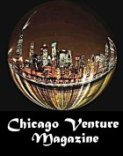



































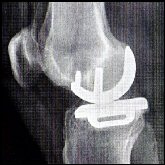








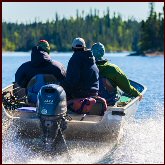





















































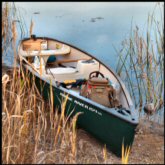


































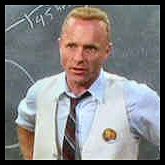







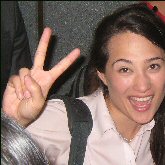























Pingback: FASCINATION OF A THOUGHT LEADER | Chicago Venture Magazine